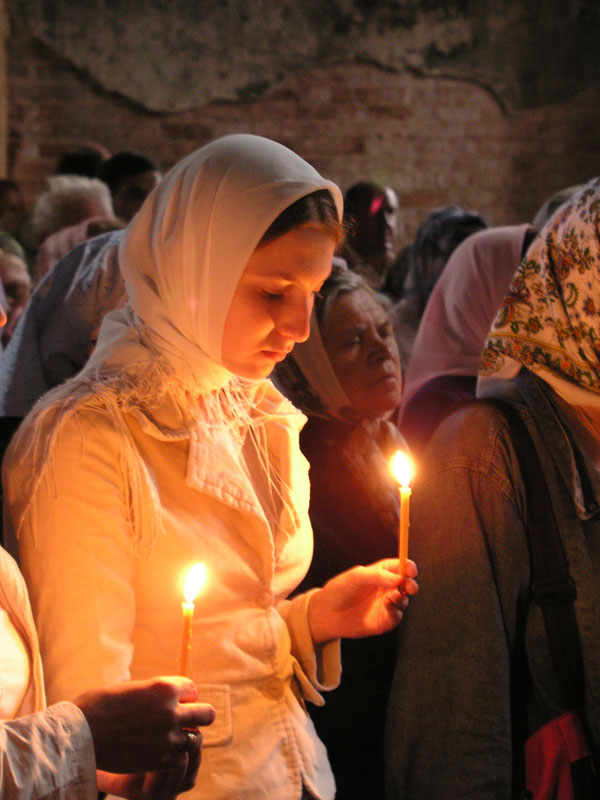As many of you have already figured out, the way my brain works is that in order to make sense of something, I have to paint a picture. Once I was asked to speak on prayer at a symposium. Here is the picture that I made up for myself.
First, I decided to figure out what prayer is not. It is not a conversation with God. If someone called me on the phone every morning and every evening and read the same text every single time without pausing to see whether I have anything to say, I would not call that a conversation. I would call that the weirdest thing that ever happened to me. Furthermore, prayer is not meant to tell God how we are doing or what our needs are (e.g., “God, I have cancer/need healing/my son is out late, please keep him safe, etc.”). If God knows everything–and this is the kind of God in whom we believe–then He does not need us to tell Him what our needs are. So, if prayer is not meant as a dialogue, nor is it meant to convey any information, what is it?
Second, I thought of activities that people do regularly. To be sure, people do a lot of things regularly–eat, for example, or breathe. Prayer has been likened to both food and air, but I do not like those images. Without food or air, people die. Some may propose that without prayer one’s soul also dies. While this is a beautiful idea, the simple fact is that if someone who never prayed in his whole life came to us, we would not propose that this person has a dead soul. Then we might propose that, indeed, the soul is not dead yet but would die eventually–in other words, it can get quite messy. So, the image of prayer as food for the soul of air for the soul may work for other people, I just do not like it very much.
What other things do people do regularly–the same thing over and over again? Athletes train regularly and repeat the same movement over and over again in order to get better at it. People often come and complain that they cannot focus on prayer, that their mind is scattered with various unrelated thoughts during prayer. We can think of our daily prayer rules as an exercise in many different things, but as an example, it can be viewed as an exercise in gathering the mind and focusing it on the words of the prayers. Just because you cannot accomplish something the first time you try, does not mean that you cannot train for it, get better at it, and, eventually, master that skill.
Musicians regularly tune their instruments. With use and even with storage instruments get out of tune, and musicians constantly adjust them and bring them back to the true notes. I think that it is the same with prayer. Our soul is a musical instrument meant to play in the divine symphony. But overtime, the soul begins to get out of tune, it plays false note, and even enters into a dissonance with divine harmony. Prayer, then, is our daily tuning of our soul to the same purity of note with which the souls of the saints sound in the divine chorus. Each one of the prayers in our prayer book was composed by a saint, and when a prayer resonates in our soul, we check the sound of our soul against the sound of the prayer. The prayer rule is like a tuning fork–we hear the true note and tune the instrument of our soul accordingly.
This process of tuning can also be seen as a process of healing: the instrument that was completely out of tune, is repaired, tuned, and returned to the orchestra where it glorifies God with the pure sound that it is meant to play. The same image of a musical instrument can also be used in speaking about counseling in the parish or any relationship: two souls, two instruments play in harmony when they are tuned true, and their melody in beautiful. If one of them is out of tune, there can be no harmony, yet the one that is out of tune can still be tuned using the one that plays true notes. But when both are out of tune, then the situation is even more difficult and the concert would have to be cancelled until a tuning fork is found and the instruments are tuned.




















